Sharing Development, Strengthening Security and Creating the Future Together
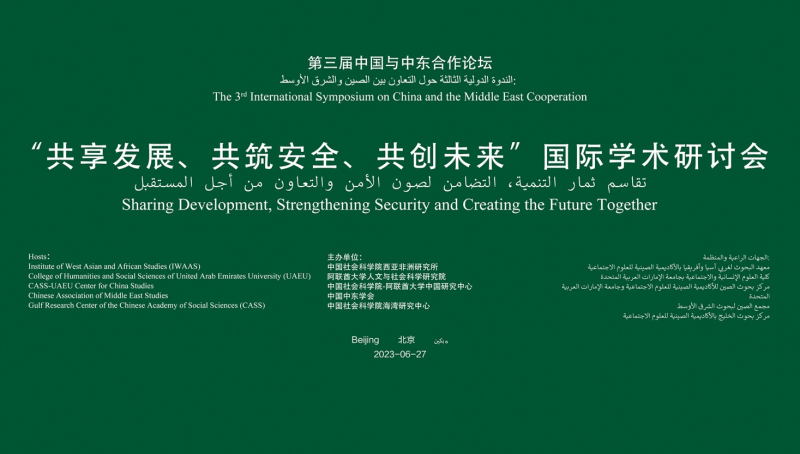
The3rd International Symposium on China and the Middle East Cooperation was held by the Institute of West Asian and African Studies (IWAAS), Chinese Academy of Social Sciences (CASS) on June 27, 2023 under the theme "Sharing Development, Strengthening Security and Creating the Future Together". The symposium was attended by more than 60 people, including ambassador of Jordan to China, ambassador of Syria to China, and scholars from China, Saudi Arabia, U.A.E., Egypt and other Middle East countries online and offline. Wang Xiaoming, Deputy Director-General and Professor of IWAAS presided over the opening ceremony.
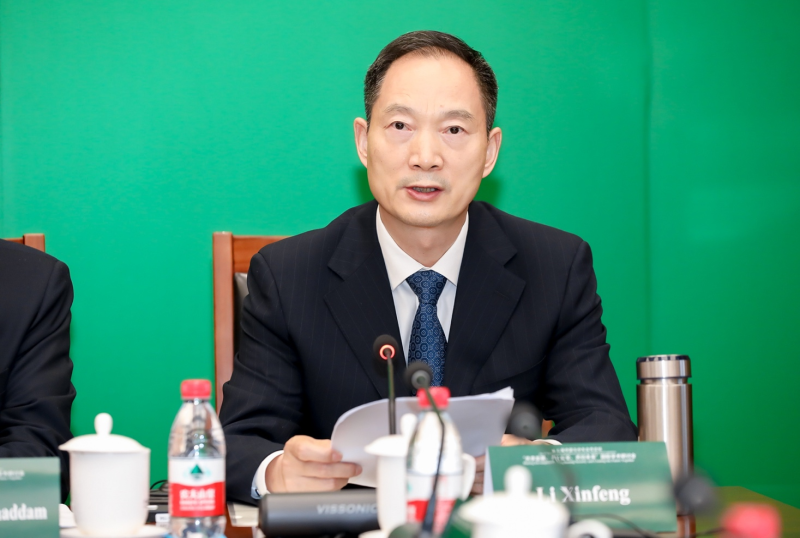
Professor Li Xinfeng is making opening remark
Professor Li Xinfeng, Director-General and research fellow of IWAAS said in the opening speech, "We are now undergoing unprecedented changes in our world, in history and in our times, and the international system is also going under profound changes. The vast developing countries have a great say in the international community, however, peace and development are still two major challenges facing the Middle East. The Belt and Road Initiative (BRI), Global Development Initiative (GDI), Global Security Initiative (GSI) and Global Civilization Initiative (GCI) are international public goods put forward by China to meet the challenges faced by human society. Those initiatives are well-received by the Middle East states, as they are instructive for promoting peace and development in the region."
In December 2022, Chinese President Xi Jinping attended the first China-Arabic States Summit and China-Gulf Cooperation Council (GCC) Summit, and paid a state visit to Saudi Arab, embarking on a new journey of promoting the building of China-Middle East community for a shared future. Both China and the Middle East are important players of the international arena, they are both standing at a major crossroad. It’s imperative for us to work closely to over come challenges and move forward together, said professor Li Xinfeng.

Professor Hassan Al Naboodah is delivering a speech online
Hassan Al Naboodah, Dean of College of Humanities and Social Sciences of United Arab Emirates University (UAEU) spoke highly of China-U.A.E. cooperation. He said, "China was once the main destination for Arabic travelers and merchants. The Arabs were among the first merchants to arrive in China. A large collection of Chinese porcelain pieces dating back to 1000 years were found in U.A.E., and evidence shows that China and U.A.E remained close communication in culture since ancient times. Navigation and trade are the main reasons for different culture exchanges among the Gulf region, Indian ocean and China. China and U.A.E. are enjoying growing bilateral relations in recent decades, with increasing cooperation in investment and technology."
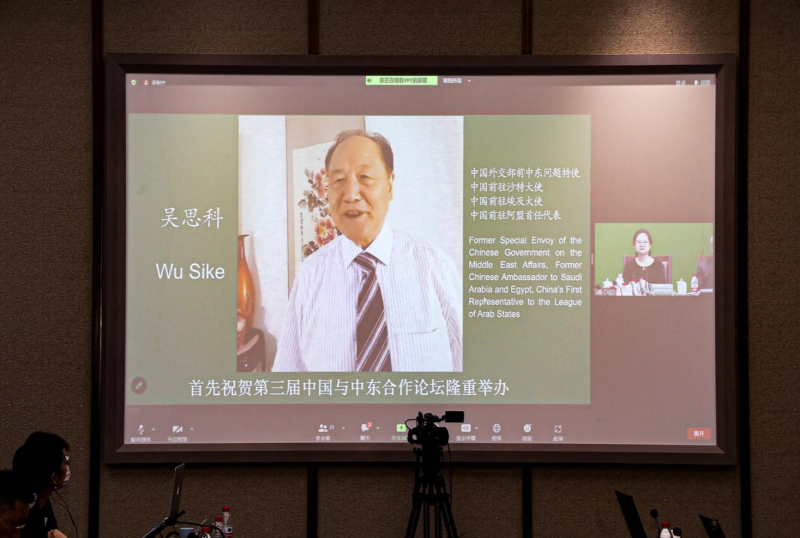
Ambassador Wu Sike is delivering a keynote speech online
Ambassador Wu Sike addressed a keynote speech. He served as the former special envoy of Chinese Government on the Middle East Affairs, former Chinese Ambassador to Saudi Arabia and Egypt, and the first Chinese plenipotentiary representative to the League of Arab States. He noted that the symposium comes at a good time, the theme reflects the features of China-Middle East relations. As the world is entering a new phase of turbulence and transformation, the Middle East is undergoing profound changes, and making inspiring progress. China and the Arabs advocated mutual learning among different civilizations, we have no discrimination against other countries and we believe that there is no such a thing as Clash of Civilizations.
At this time, realizing national rejuvenation is our common mission, the successful experience of Chinese modernization and Arabic states’ efforts in seeking their paths of development show that we should always keep our future in our own hands, adhere to full cooperation and common development, in order to set a good example for South-South cooperation and mutual learning among civilizations in the new era. Tasks and challenges are still ahead of us, we need to strengthen communication and work together to overcome challenges, said ambassador Wu Sike.
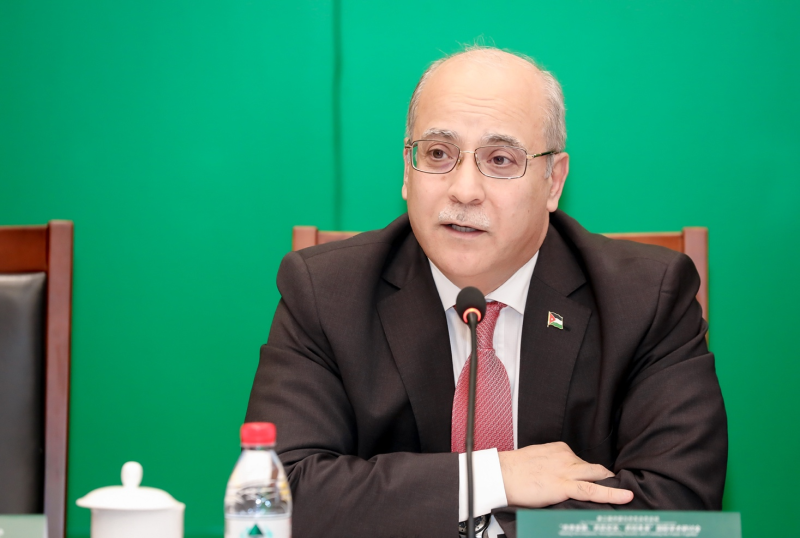
Ambassador Hussam Al Husseini is delivering a keynote speech
Hussam Al Husseini, Ambassador of the Hashemite Kingdom of Jordan to China stressed the importance of China-Arab cooperation in his speech. He said, China and Middle East states have a long history of interaction in civilization, culture and economy. The Silk Road is one of the most important ways of communication between Chinese and the Arab people, this shared history has paved the way for sustainable development of China-Arab relations. The advanced science and technology, especially telecommunication has been acting as a bridge to bring Chinese and Arabic people closer and help to broaden horizon of the people.
"The countries across the world are facing common challenges, which can not be addressed by one country alone. The key to the solution is to implement practical plans. Through sincere cooperation, we should put human salvage at the primary place, we should believe that the universal is a united eco-system, and we can not harm other people in pursue of our own personal interest. We should draw a lesson of humanitarian values and moral values from our common experience, those notions can bind us together than ever before. It is our responsibility and mission to build a common community with shared future for mankind, " said the ambassador.
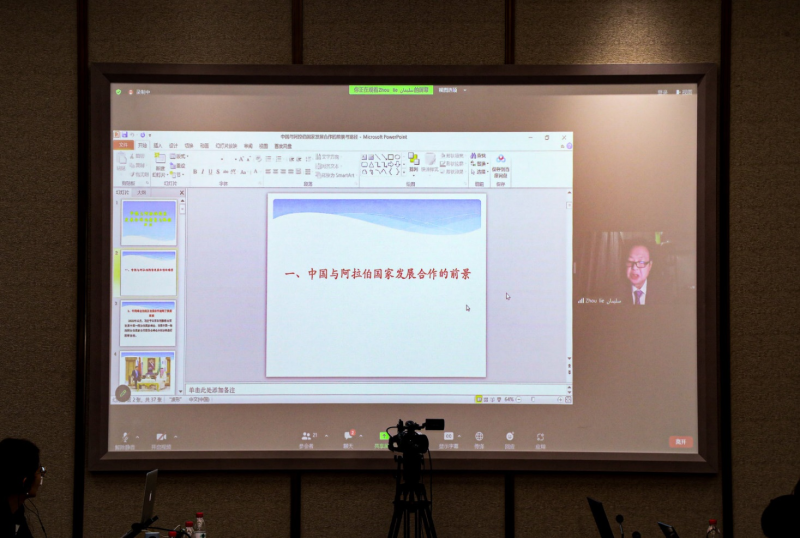
Professor Zhou Lie is delivering a keynote speech
Professor Zhou Lie, former president of Beijing International Studies focused his speech on the prospects and pathways of development cooperation between China and Arabic states. He said, China-Arab States Summit has drawn a blue print for China-Arab cooperation. Last year, Chinese president Xi Jinping attended China-Arab States Summit, China-Gulf Cooperation Council (GCC) Summit and paid a state visit to Saudi Arab. President Xi put forward important proposals that are regarded as top-level design for China-Arab relations, and a pathway to build a China-Arab community for a shared future. Positives changes are seen in regional relations, creating favorable environment for China-Arab development cooperation. Saudi Arabia’s decision to restore diplomatic relations with Iran has mitigated the major conflict in the region. Arabic states have strong desire to strengthen cooperation with China, which is the biggest driving force for China-Arab cooperation.
However, challenges are ahead of us as many Arabic states are still in unstable statues, and some are facing severe economic problems. In order to promote China-Arab cooperation, we should safeguard long-term stability, take a path of our own, pursue common development, seek development with our won characteristics, and implement the decisions made on China-Arab States Summit. China will continue to work closely with Arabia states in promoting the building of China-Arabic community for a shared future, making contribution to the long-term peace, universal security and common prosperity in the region, said professor Zhou Lie.

Ambassador Mhd. Hasanein Khaddam is delivering a keynote speech
Mhd. Hasanein Khaddam, Ambassador of the Syrian Arab Republic to China said, "Through our history, the Middle East was the meeting place and crossroad for inter-civilization and exchanges. Syrian-China relations are dated back to more than two millennial. But the western-centered narrative did not say well of Western Asia-East Asia relations. Therefore, historians from China and Arabic states have a huge task ahead of them, which is to dig out what the earth is hiding about the deep friendship that our forefathers forged."
Ambassador Mhd. Hasanein Khaddam talked about the Western influence to the Middle East. He said, "Proximity to the West was more a curse than a blessing to the Middle East. Competing each other for zone influence, Western powers brought non-stop instability to the region right from the World War I. They regarded Israel as their European fortress against the ‘Asian barbarians’, drawing the maps without regard to the will of people in the region. The broader banner of US policy was Israel security and oil. To serve this banner, ethnic, religions and other tools were used for division and ruling. The so called ‘Arabic Spring’ was a synchrony with the US pivot to Asia, i.e. leading the Middle East into the vicious circle of instability and chaos to focus on China."
The ambassador expressed his appreciation to the Chinese government and people for standing besides Syria. He said that the international situation is changing quietly with China’s rise. A serious of initiatives put forward by the Chinese leadership, including the BRI, GDI, GSI and GCI are based on the Bandung Principles and international norms, and are well received by vast developing countries.
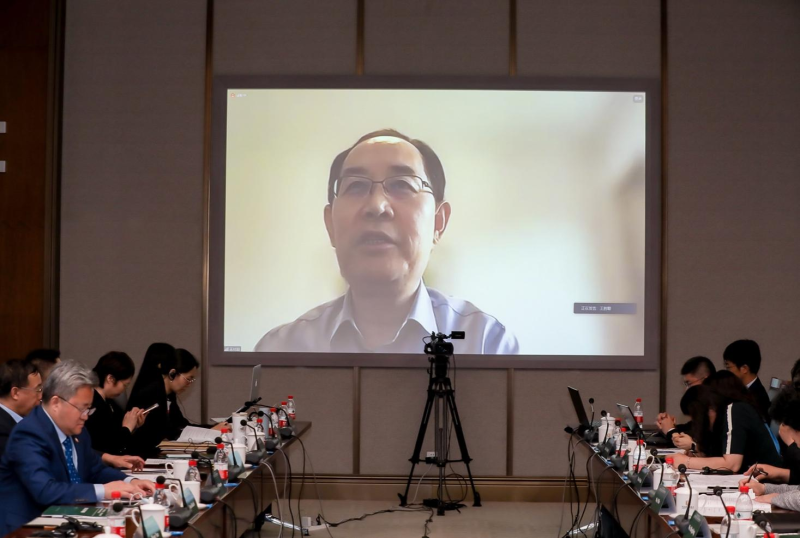
Professor Wang Lincong is delivering a keynote speech online
Wang Lincong, deputy director-general and research fellow of IWAAS, CASS; president of the Council of the Chinese Association of Middle East Studies said that the Middle East is at a historical turning point. Strategic Autonomy, development first and increasing reconciliation are the three major driving forces behind the change. China-Middle East relations have now entered a fast lane: the two sides have deepened political mutual trust and strategic partnership; their economic and trade relations have gain good momentum; people-to-people exchanges have seen encouraging outcomes; and security cooperation has been strengthened. Therefore, "Sharing Development, Strengthening Security and Creating the Future Together" have become the common prospects for Middle East states and China, it is also why we hold such an international symposium.
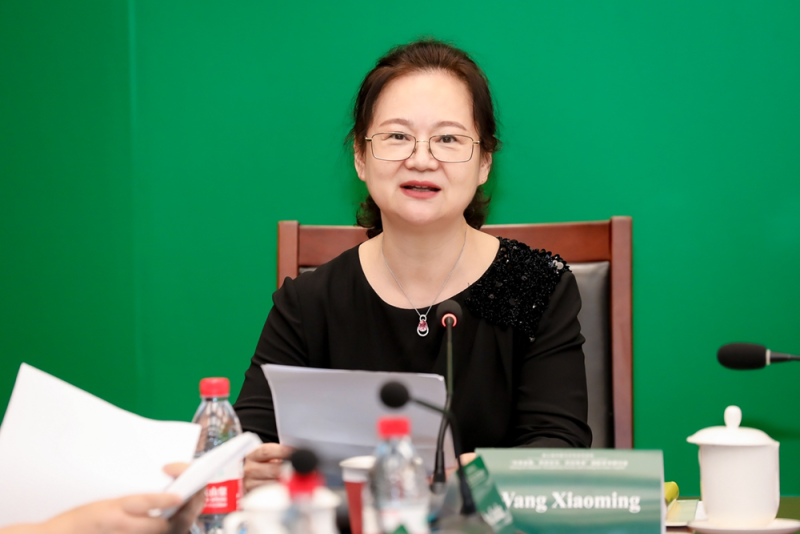
Professor Wang Xiaoming presided over the opening ceremony
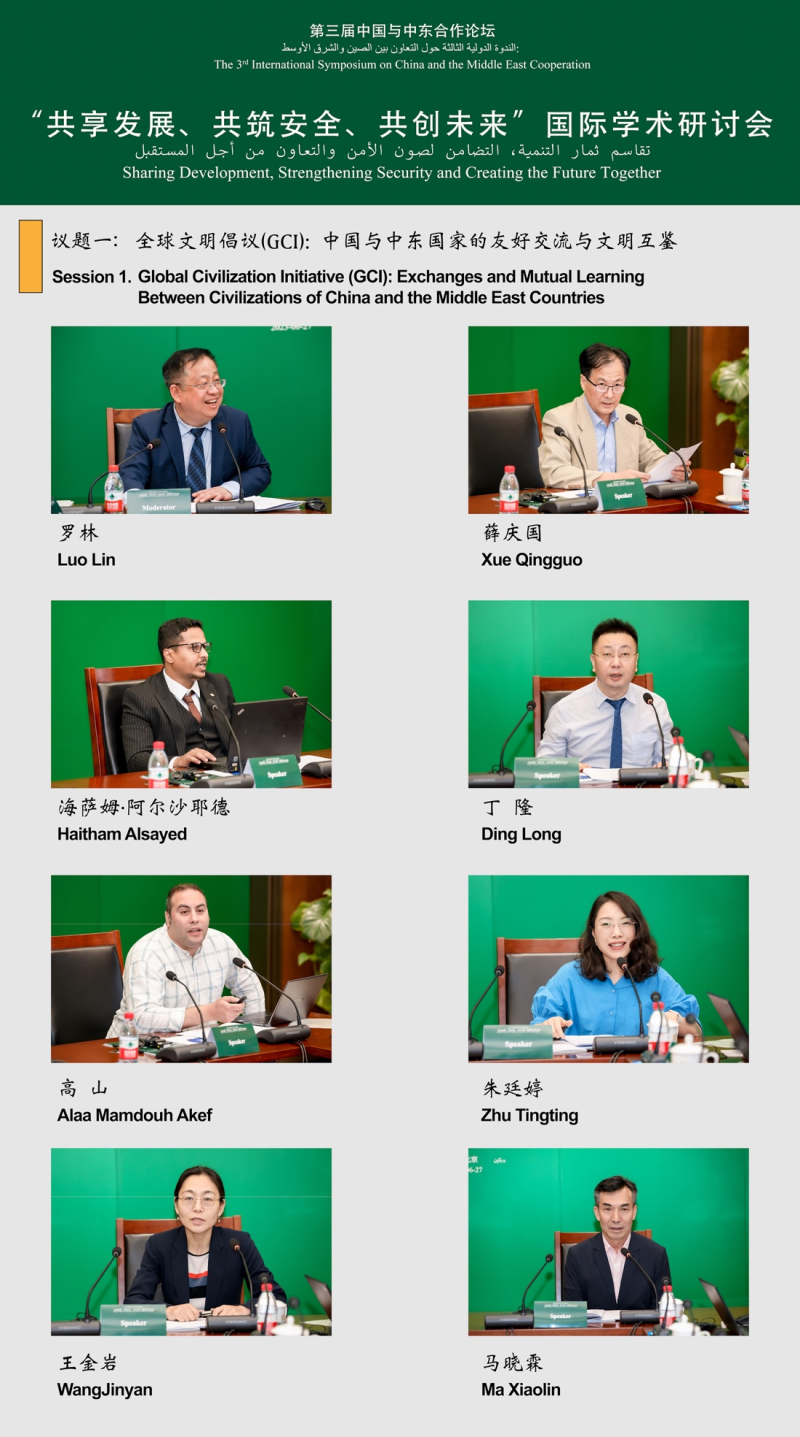
Speakers at Session 1 of the symposium
The symposium consists of three sessions, each with a topic, namely, Session 1. Global Civilization Initiative (GCI): Exchanges and Mutual Learning Between Civilizations of China and the Middle East Countries; Session 2. Global Development Initiative (GDI) and Belt and Road Initiative (BRI): Cooperation on Development Between China and the Middle East; Session 3. Global Security Initiative (GSI): Security Cooperation Between China and the Middle East.
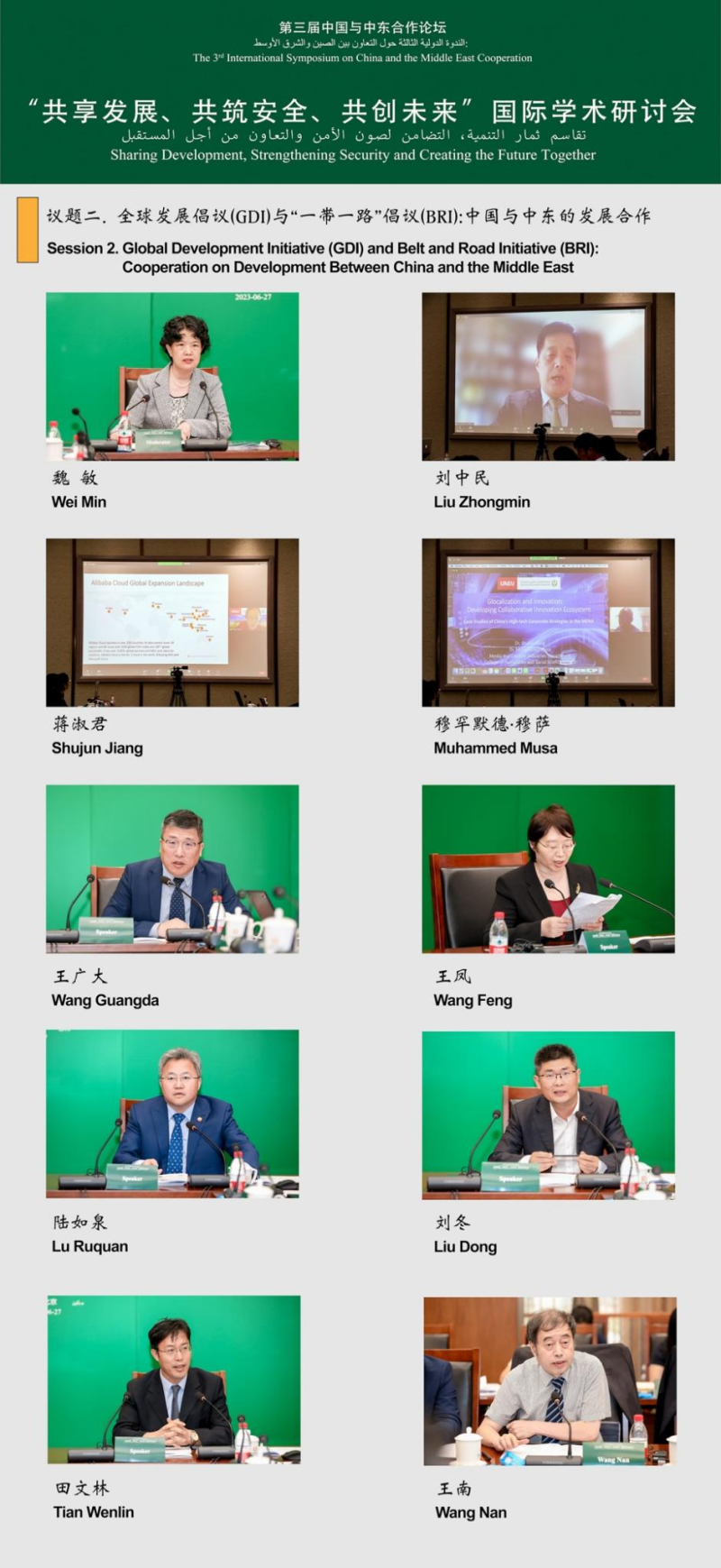
Speakers at Session 2 of the symposium
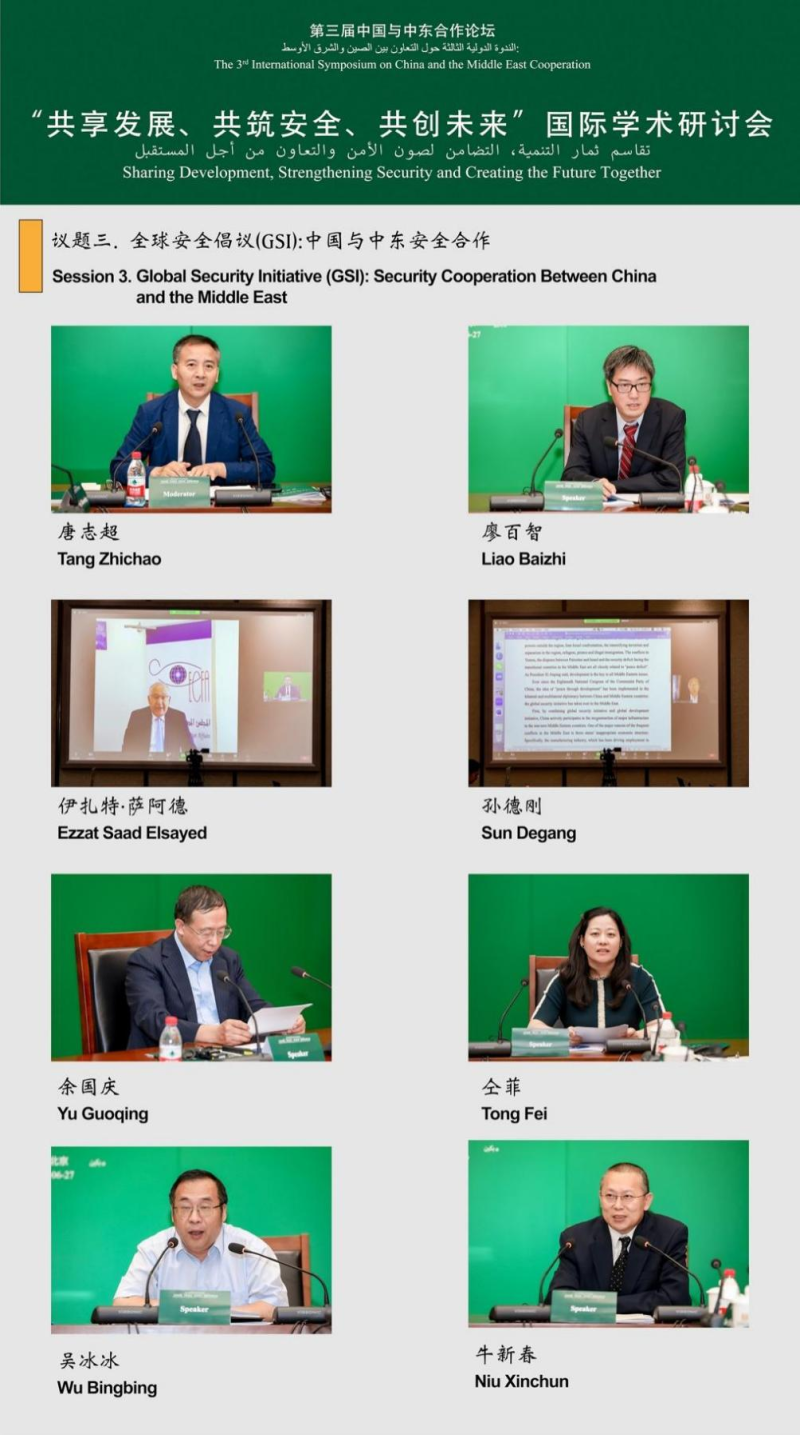
Speakers at Session 3 of the symposium
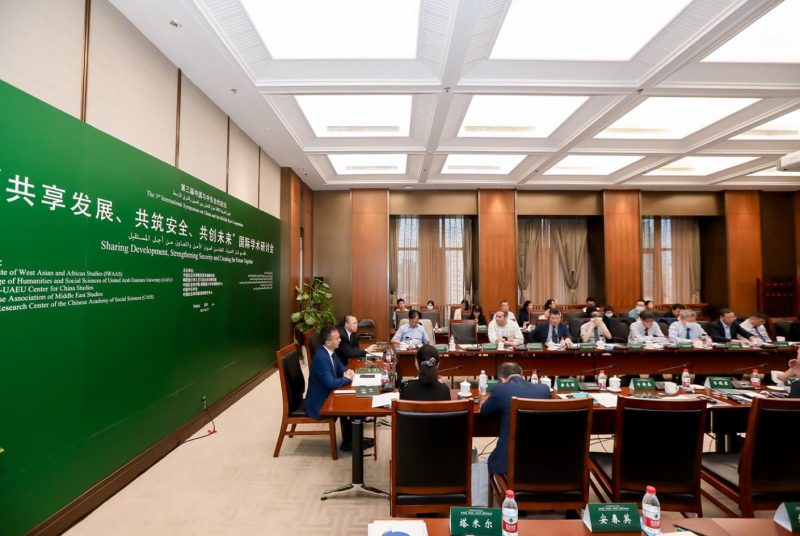
Participants at the symposium
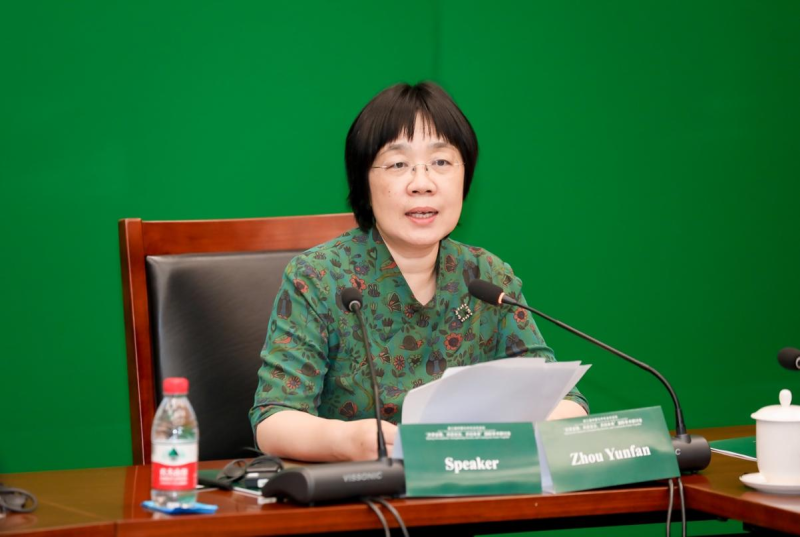
Zhou Yunfan is delivering a closing remark
At the closing ceremony, Zhou Yunfan, Deputy Director-General of IWAAS congratulated on the success of the event. She said that friendly exchanges and mutual learning are important basis for China-Arab cooperation. We should make full efforts to implement the BRI and GDI to bring forward full development of China-Middle East relations and create a promising future for China-Middle East cooperation. China and the Middle East states should strengthen cooperation in regional security, which is the key for implementing the GSI. Despite of the unrest and security threat, Middle East states have the ability to explore new security landscape and create better conditions for development.
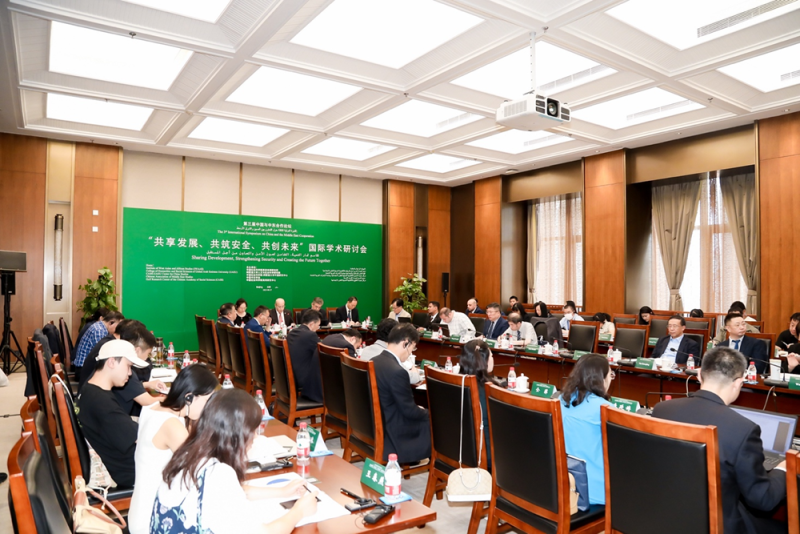
Participants at the symposium
The symposium is jointly organized by IWAAS, College of Humanities and Social Sciences of United Arab Emirates University (UAEU), CASS-UAEU Center for China Studies, Chinese Association of Middle East Studies and Gulf Research Center of CASS. The symposium is aimed to bring together diplomats and scholars from China and Middle East states to share their views on China-Middle East cooperation, and to strengthen development cooperation between the two sides.


